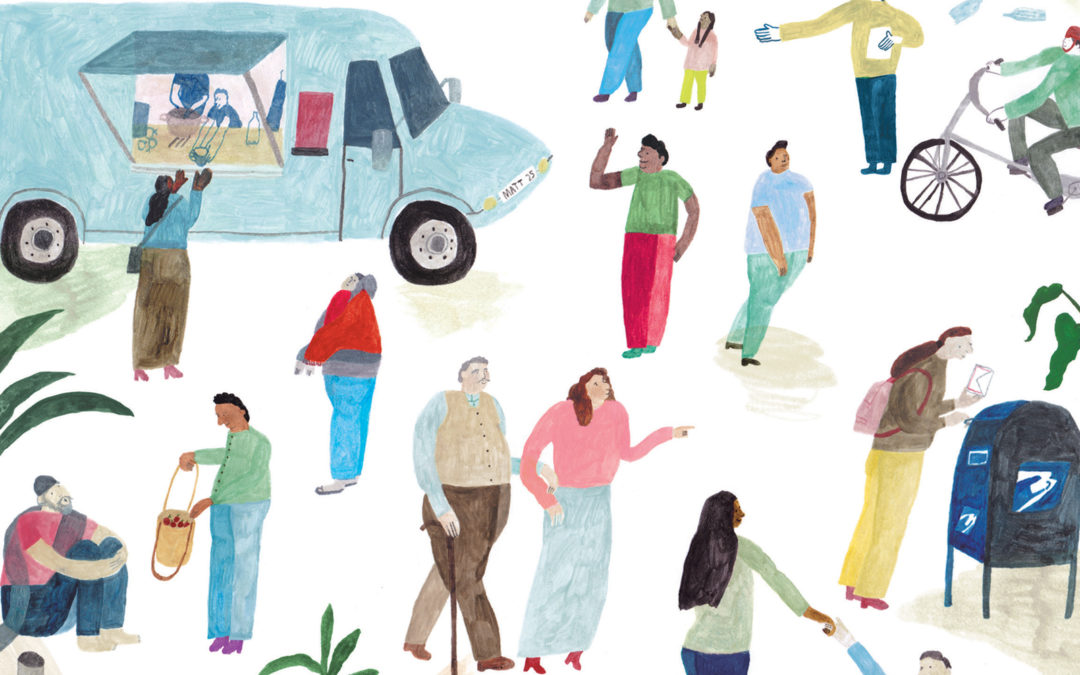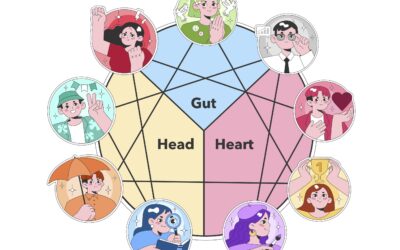by Elizabeth Hunter—
She sat alone at a cafeteria table. Taller than anyone else in our third-grade class, the new girl peered out from behind thick glasses. Some of the boys at our parochial school had already poked fun at those glasses and her old-fashioned saddle shoes. I watched her take slow bites of a strong-smelling, liver-sausage sandwich. When a few kids began to complain about the smell, she started to silently cry.
She needs a friend, I thought. I knew Jesus wanted me to love my neighbor. But what if my friends didn’t understand? I glanced at my best friend—one of the most popular girls in school—chattering happily at our full table. I knew what to do. But I hesitated.
Why? It’s usually the same answer, regardless of age: fear. It could be the fear of judgment, of not having enough or of missing out. It could be fear of not being significant. Fear of failure. Fear of being alone. Fear of dying. Fear of dying alone. We can be terribly short-sighted sometimes.
“We are all dying, all the time,” Anna Madsen writes (p. 12). “We have much to fear, all the time. But as Christians, we believe that Jesus is risen from the dead. This faith knowledge of resurrection does no good if it isn’t trusted.”
In this issue of Gather, Bible study author Kit Kleinhans encourages us to sit with the stories of Biblical ancestors who were called to serve (p. 20). There’s no getting around God’s call. Piety alone won’t serve, Kit warns: “The way to love God above all else is not through our religious rituals, but through loving the neighbor whom God has given us” (p. 21). To those who think some neighbors are better ignored, Martin Luther insists the neighbor is anyone “who needs our help…even one who has done me some sort of injury or harm…the commandment of love remains in force” (p. 22). We’re called to love and serve neighbors “because of who we are in Christ,” Kit says.
That long-ago day, I finally walked over to meet Lorena, sit with her and listen. It was one of the better things I’ve ever done, although it cost me something over the years. My new friend had already been so wounded—by a world that hadn’t made her feel utterly loved and precious—that our friendship was not always easy. And my best friend was still my BFF, although for a while she would ask, “Tell me again why you have to be friends with her too?”
Changing tables changed us. I began noticing the ways my other friends braved their fears and served. Lorena moved to our table. One of the teasing boys who plagued Lorena was the first of us to welcome several new students who were Hmong refugees, watching over them and gently repeating English words for them. Seeing him walk the new students around our faith-based school changed us too. We were young children, but we got the message. We could trust God to make more than enough room—at our tables, in our friendships, in our hearts—for everyone.
Elizabeth Hunter is editor of Gather.
This article appeared in the March 2020 issue of Gather magazine. To read more like it, subscribe to Gather.
A priceless gift
In 1993, my husband and I moved from Southern California where I’d grown up to Berkeley, where I...
In the image of God
If you were to attend Sunday service at Holly Grove Lutheran Church in Lexington, North Carolina,...
Faith in economics
What is the rule of your household? How do you manage your home? How do you make sure that...





